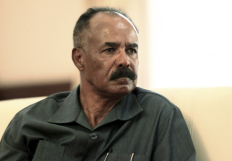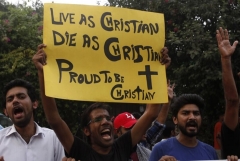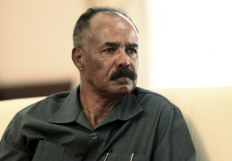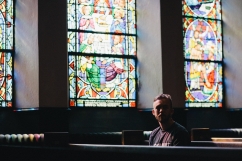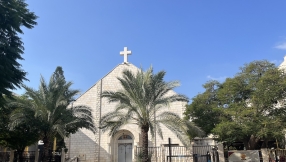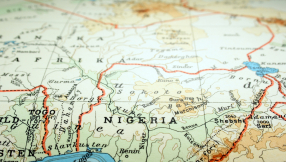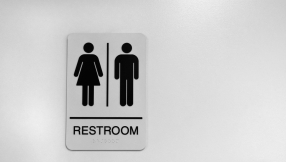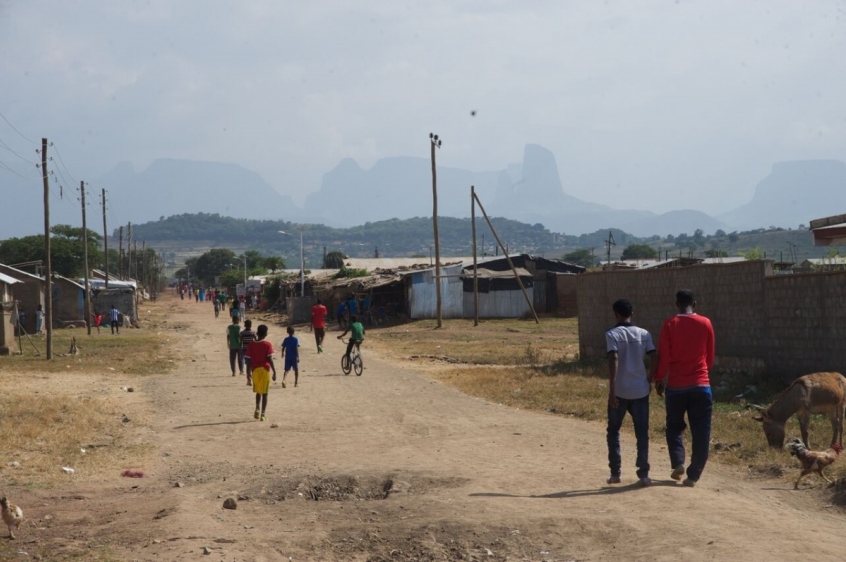
More than 300 Christians are believed to be languishing in Eritrean jails, while tens of thousands have fled the country's brutal regime.
Located in the horn of Africa, Eritrea is run under a one party political system – President Isaias Afwerki of the People's Front for Democracy and Justice party has been in power since independence in 1993, and the formation of other political groups is forbidden. For more than a decade, the government has been persecuting Christians, who make up around half of the population, and other vulnerable groups. According to persecution charity Release International, all evangelical and independent churches have been closed, and many Christians tortured for their faith.
Last year, Eritreans were the second largest group to risk the perilous journey across the Mediterranean in the hope of a better life in Europe. The largest group were from Syria, where a five-year civil war is dragging on.
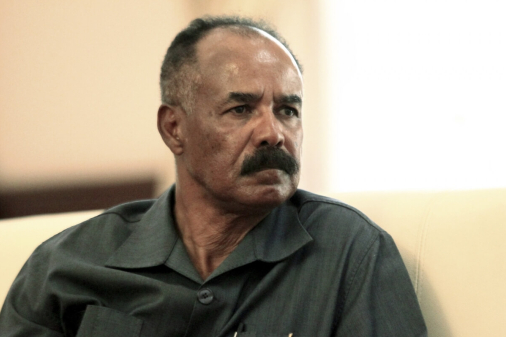
As of December 2015, however, more than 130,000 Eritreans were living as refugees in neighbouring Ethiopia, according to the UNHCR.
Release International visited a refugee camp in Ethiopia, where Christians who had fled Eritrea revealed the extent of the brutal treatment they experienced.
"There is no law and no justice. When I was living in Eritrea I was arrested because of my Christian faith. That's why I left. In Eritrea almost every Christian faces imprisonment," one refugee, Dawit, told researchers.
He spent more than a month in prison, and also in a hard labour camp. He says he was tortured, and forced to sleep every night with his hands and feet lashed together behind his back.
Other refugees shared stories of horrific treatment at the hands of Eritrean authorities. Dr Berhane Asmelash, a former prisoner and victim of torture, described prisoners being tied up and hung from trees. One form of hanging is known as the 'Jesus Christ', he said, because the victim looks as though they are on a crucifix.
"Eritrea is like a giant prison," Asmelash added. "The country is filled with jails, concentration camps and prisons. And it is like North Korea, but in Africa."
Elsa fled Eritrea after her sister was beaten to death by prison guards. "We were kept in underground cells. Sometimes the guards put us both in a metal shipping container to torture us. This became so hot during the day and then in the night it became freezing cold," she recalled.
"We didn't get much to eat and there was no medical treatment. The guards offered to let us go, but only if we renounced our faith in Jesus. We said no."
One night the guards took it in turns to beat Elsa and her sister. "I will never forget hearing the screams of my sister," she said. "I never saw her again".
In June 2015, a year-long UN inquiry into human rights in Eritrea found the "systematic violation of an array of human rights on a scope and scale seldom witnessed elsewhere in the world."
A damning report criticised the country's "pervasive control system used in absolute arbitrariness to keep the population in a state of permanent anxiety".
"In its determination to safeguard its own continued existence, the Government has proceeded to establish a system by which individuals in society are silenced and isolated through the organized repression of the freedoms of opinion, expression, assembly, association and religion," the report said.
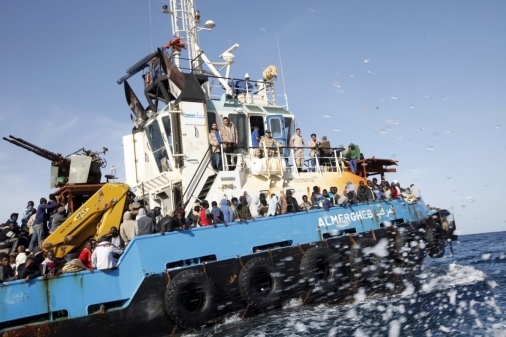
"Pervasive control systems and heavy consequences for perceived deviant behaviours...have created an environment of self-censorship whereby individuals no longer trust anyone – not even their own family."
Though human rights abuses affect almost everyone except the powerful elite in Eritrea, people of faith are at particular risk. In May 2002, the government announced that it formally recognised just four religious denominations: the Orthodox Church, which is the largest Christian community in the country, the Catholic Church, the Evangelical Lutheran Church and Sunni Islam. Every other group was told to apply for registration, and had to adhere to very stringent terms. Over a decade later, and not a single further denomination has been accredited.
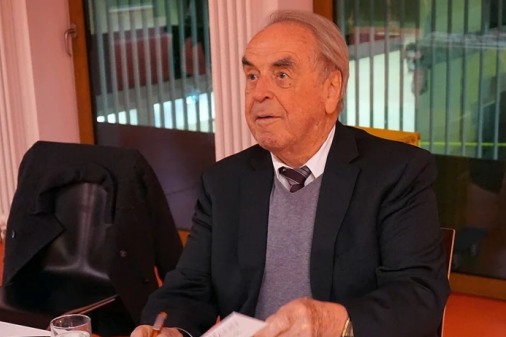
According to the UN, even those religious communities that are accredited are "nevertheless to varying degrees targeted by restrictions and attacks by the Government."
"Interference in religious structures and affairs is rampant," the report said. "Religious materials are confiscated. Adherents are arbitrarily arrested, ill-treated or subjected to torture during their detention, and prisoners are coerced to recant their faith. Many religious followers have been killed or have disappeared."
The UN Commission concluded that the Eritrean government "perceives religion as a threat to its existence and has set about controlling it and its expressions."
Release International is supporting Eritrean refugees by helping them to set up small businesses in the camps.
Temesgen has set up a photography shop. He takes and edits pictures in the camp, and has them printed in the local town. "This shop has really helped us to support the family. We can live a normal life, providing for ourselves," he said.
"This refugee camp may seem like a wilderness but we feel God's presence and we are together.
"The greatest thing now is that we can express our faith openly."
Deborah, another Eitrean refugee, urged Christians around the world to pray for those suffering for their faith.
"Please pray for protection for us as we share our faith under enormous pressure. Pray for wisdom and for the Holy Spirit to lead us. Pray for Christian prisoners that God would strengthen their faith while in jail. Pray too for good health in spite of the terrible conditions and that they would be released soon. Pray for the church here to be strong in faith, not to be in fear but to keep on declaring the kingdom of God and sharing the gospel with others," she said.
"Pray for justice to come to Eritrea."










